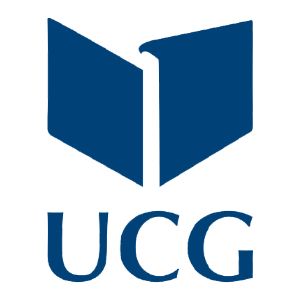 The University of Montenegro (UoM) was founded in 1974. It is the oldest institution of higher education in Montenegro with more than 20,000 students. It is the largest and the only comprehensive university education institution in the country, comprised of 19 faculties and 2 scientific institutes. The Faculty of Medicine (FoM) of the UoM was founded 20 years ago and employs 54 people, out of which 21 researchers (Ph.D.). It is the only institution of higher education in the country responsible for education of Medical Doctors, Doctors of Stomatology and Pharmacy as well as for higher education of nurses. The majority of students are enrolled into one of the 3 professional tracks: 329 to the School of Medicine, 159 to the School of Dentistry and 203 to the School of Pharmacy. The Faculty offers a 3-year Ph.D. programme, with the Cell Biology and Molecular Genetics as core subjects. Faculty of Medicine is primarily an academic institution, but scientific research and participation in policy making as well as development of medical doctrines and protocols are also its important functions. Students gain knowledge and skills through theoretical and practical teaching, which involves working with patients, starting from the third year of study. The focus of students’ education is based on training for the diagnostics, therapy, rehabilitation, prevention health disorders.
The University of Montenegro (UoM) was founded in 1974. It is the oldest institution of higher education in Montenegro with more than 20,000 students. It is the largest and the only comprehensive university education institution in the country, comprised of 19 faculties and 2 scientific institutes. The Faculty of Medicine (FoM) of the UoM was founded 20 years ago and employs 54 people, out of which 21 researchers (Ph.D.). It is the only institution of higher education in the country responsible for education of Medical Doctors, Doctors of Stomatology and Pharmacy as well as for higher education of nurses. The majority of students are enrolled into one of the 3 professional tracks: 329 to the School of Medicine, 159 to the School of Dentistry and 203 to the School of Pharmacy. The Faculty offers a 3-year Ph.D. programme, with the Cell Biology and Molecular Genetics as core subjects. Faculty of Medicine is primarily an academic institution, but scientific research and participation in policy making as well as development of medical doctrines and protocols are also its important functions. Students gain knowledge and skills through theoretical and practical teaching, which involves working with patients, starting from the third year of study. The focus of students’ education is based on training for the diagnostics, therapy, rehabilitation, prevention health disorders.
The presence of UoM staff in the project team is especially important when it is known that UoM in Montenegro is the only institution that contains educational programs for all health professionals, and the only one that has the educational profile of a PhD in medicine. This was the basis for the inclusion of a representative institution from the health sector (IPHM) from the territory of Montenegro. In this case, the existence of these two institutions in one country was used as a comparative advantage for monitoring the project outputs, which is explained in more detail in the part describing IPHM’s participation in the project. In this regard, UoM is one of the key institutions for monitoring the effects of the new learning model on the sector of representative institutions and society as a whole
